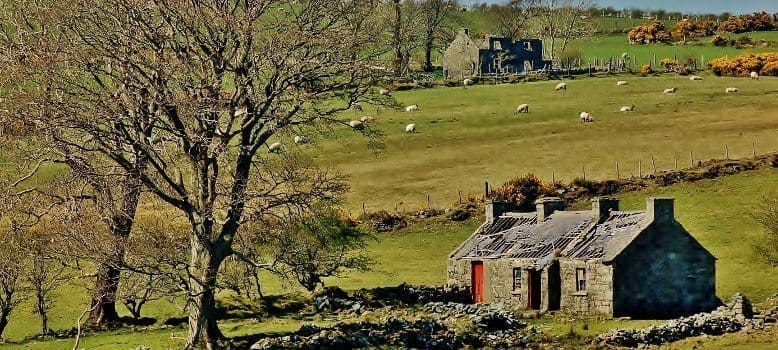
Ireland has joined the list of countries to introduce controversial agricultural emissions legislation. Photo: Irish Farmers’ Federation
IRELAND has been added to the list of countries to make a commitment to dramatically cut agricultural emissions – aiming for a 25 percent reduction between the years of 2018 and 2030.
The goal has sparked furious debate in Ireland, with the peak farming lobby raising concerns about the livelihoods of farmers and the possibility of decreasing herd sizes. It is part of an overall goal to reduce carbon emissions by 51pc.
Ireland has become the third country in recent months to make controversial legislation about agricultural emissions – with The Netherlands and New Zealand also making big commitments.
Irish Farmers’ Association president Tim Cullinan said the deal to implement the target was about the survival of the Government rather than survival of rural Ireland.
“The Government has agreed to a target without any pathway to get there or any budget to assist farmers to reduce emissions,” Mr Cullinan said.
“They have no idea of the economic and social impact of today’s decision on the farming sector or rural Ireland. Farmers across the country will be rightly worried about what this means for their future.
“The implementation plan to achieve the target will be vital. I want to make it clear that any attempt to undermine farmers livelihoods or the viability of sector, in order to achieve these targets, will be opposed vigorously by the IFA.”
While I understand these concerns, I don’t agree with them
Irish environment minister Eamon Ryan today penned an editorial about the legislation in the Irish Examiner, where he addressed the farming lobby’s concerns.
“While I understand these concerns, I don’t agree with them,” Mr Ryan said.
“This agreement is actually about ensuring that Irish family farms can thrive, can diversify their income streams, and can be fit for purpose to meet low carbon agri-business and consumer demands.
“However, while it’s important that we have healthy and robust debate, and ongoing scrutiny of Government decisions, the big task now is to put in place, at scale and at speed, the systems, supports, and infrastructure we need to implement the ambitions of this agreement.”
Will there be destocking?
In forming the legislation, a parliamentary committee heard from prominent scientists Frank Mitloehner, from the University of California Davis and Oxford University’s Myles Allen.
The pair were quizzed about the prospect of increasing herd sizes and its impact on global warming. Professor Allen said increasing herd sizes would contribute to warming, but there was important nuance to the information.
“We must make it clear to countries what they are doing if they increase herd size, because they would be contributing to warming,” Prof Allen said.
“If you reduce a herd, it has the same impact on reducing global temperature as planting a lot of trees, by actively taking CO2 out of the atmosphere. If these reductions were acknowledged, it might go a long way to diffusing farmers’ concerns.”
Prof Mitloehner said making reductions to methane emissions by using measures like feed additives or capturing it from the manure, would also have a cooling effect.
“A constant source of methane does not add to warming. If you decrease methane like we have in California, this reduction of methane leads to a reduction of warming,” Prof Mitloehner said.
“Methane is only a problem if we ignore it, if we manage it we can be part of the solution.”
You can reduce GHGs from cattle and still maintain production. We’ve seen this in California, but some are unsure of what those numbers mean. I get it, the state doesn’t make it easy to find information and it can be a bit convoluted. Let’s break it down. 🧵
1/ pic.twitter.com/QXZR7pTRHE— Frank Mitloehner (@GHGGuru) July 26, 2022
Prof Allen was part of a group, which created a livestock specific Global Warming Potential calculator, called the GWP* – which accounts for bio-genic methane differently to other sectors like transport. He said the global warming effect of livestock was often not accounted properly.
“We can fix the problem of not reporting warming impact tomorrow and you can calculate it on a farm-by-farm level,” he said.
“If you were to do this, it would be interesting for Irish farmers because they would discover the things they can do to reduce global temperatures. This issue with reporting is not a problem we need to have.”
